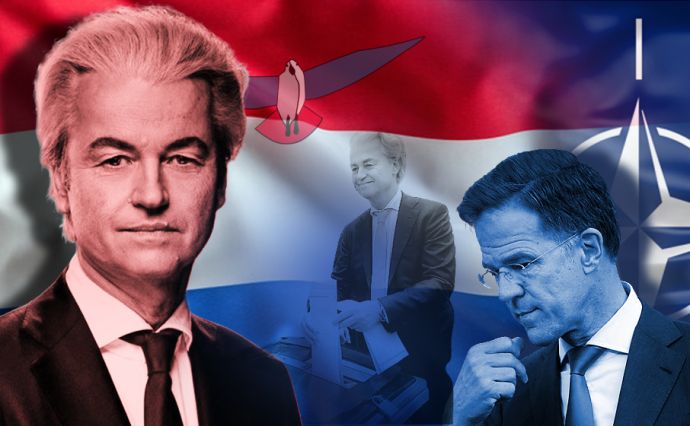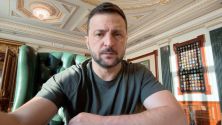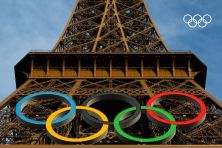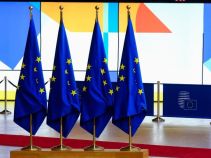The election results in the Netherlands have intensified the topic of what foreign policy will look like in the future, especially in the context of supporting Ukraine. It is worth noting that the Netherlands is a NATO and EU member state, so its foreign policy is of great importance for security and stability in Europe. However, elections in the Netherlands are not the main topic for EU and NATO foreign policy. Just like within the Netherlands, foreign policy issues have recently received less and less attention, with the focus on purely domestic problems and discussions of ways to solve them. And this agenda was in a way a determining factor in the loss of power of the government led by Mark Rutte after 13 years of uninterrupted rule.
The far-right Freedom Party (PVV), led by Geert Wilders, won the parliamentary elections in the Netherlands and will receive 37 seats in the parliament. The alliance of the Left-Greens and Labor (GroenLinks-PvdA), led by former European Commission Vice President Frans Timmermans, can count on 25 seats. “The People’s Party for Freedom and Democracy (VVD) of the current Prime Minister Mark Rutte will have 24 seats. Finally, the newly formed New Social Contract (NSC) political party, led by Peter Omzigt, won 20 seats out of the 150 seats in the parliament. Other parties, such as the Farmers’ Citizens’ Union (BBB), Democracy 66 (D66), Christian Democratic Appeal (CDA), Christian Union (CU), and others, will have less than 10 seats each.
Who are the winners of the elections and what can we expect from them? First of all, Geert Wilders is sometimes called “the EU’s biggest nightmare” because of his party’s most famous campaign slogan, “Nexit,” which became the basis for the far-right leader’s success in the Dutch elections. This is a kind of Dutch equivalent of the British Brexit, and it was for leaving the EU that Wilders’ supporters campaigned before he entered parliament. However, after his party gained a significant advantage over its competitors but failed to win a majority of seats and, accordingly, the prospect of forming a government on its own, the radicalism in the rhetoric of the Freedom Party has diminished.
Governments in the Netherlands are formed in coalitions with the participation of several parties. So, first place in the elections does not automatically mean government, but it increases the chances of it. And ever since Dilan Yesilgoz, who replaced Mark Rutte as leader of the VVD, made a public statement that her party could potentially enter into coalition talks with Wilders, the leader of the Dutch far right has made a lot of efforts to appear more moderate. He has softened some of his harshest positions, particularly on Islam, such as banning mosques, saying that there are more important priorities to address.
Despite such changes in Wilders’ rhetoric in order to win the prime ministership, the far-right is unlikely to move away from its focus on domestic issues in the Netherlands in particular and in Old Europe in general. Migration was the dominant issue in the Dutch elections and it is becoming an urgent problem for the EU. As the number of migrants continues to grow, so does support for far-right parties in many European countries. In Italy, last year, Giorgia Meloni won power for her Brothers of Italy party. In France, Marine Le Pen’s National Rally remains a powerful force, ranking second in polls. In Germany, Alternative for Germany has also risen to second place in the popularity rankings in recent months.
First and foremost, the problem is that most migrants, mostly from Africa and Asia, have no desire to conform to the cultural and legal standards of the countries that provide them with asylum. And to a certain extent, this attitude is transferred to Ukrainian refugees. So, to a large extent, the rhetoric of the far right, which seems to be anti-Ukrainian, is actually part of a general anti-migrant policy. And understanding this newest trend in the EU should become the basis for the work of Ukrainian diplomats and part of the foreign policy discourse for Ukrainian politicians.
The Future of Bilateral Relations Between Ukraine and the Netherlands
First, from a strategic security perspective, it is beneficial for the Netherlands to support Ukraine, as it is the shield of Europe. A lot of money has already been invested in Ukraine by the Netherlands, and many fundamental decisions have been made by the Netherlands, so at the strategic level, they are absolutely natural allies. By the way, recently, Dutch Foreign Minister Hanke Bruins Slot announced plans to provide additional assistance in the amount of 2.5 billion euros to support Ukraine in the war with Russia next year.
Secondly, Ukraine and the Netherlands are united by the tragic event that occurred after the start of the Russian-Ukrainian war, when Russians shot down a Malaysia Airlines Boeing 777 civilian passenger plane operating a regular flight MH17 near Donetsk, killing all passengers and crew, 298 people in total, mostly Dutch citizens.
Thirdly, last week, the “Scythian gold” that had been in the Allard Pearson Museum since 2014 returned to Ukraine from the Netherlands and was now transferred to the National Museum of History of Ukraine, where it will be stored until the de-occupation of Crimea. This step became possible due to the fact that in June of this year the Supreme Court of the Netherlands confirmed the decision of the Amsterdam Court of Appeal (issued in October 2021) that the exhibits of the exhibition “Crimea. The Golden Island in the Black Sea” exhibition, known as “Scythian gold,” must be returned to Ukraine. Thus, the Dutch Themis has clearly ruled in favor of Ukraine on the question of “whose Crimea?” and Dutch politicians will not be able to ignore this decision.
Accordingly, even when a new government coalition is formed in the Netherlands, the ruling party will not have a decisive vote by number of votes, and decisions will be made by consensus. And the political consensus of the largest Dutch parliamentary parties is on the side of Ukraine.
Therefore, the issue of support for Ukraine will remain relevant for the Netherlands in the future, but it will not become the only and main issue in their foreign policy. Ukrainian and European politicians and diplomats should take this into account when communicating with their Dutch counterparts.













